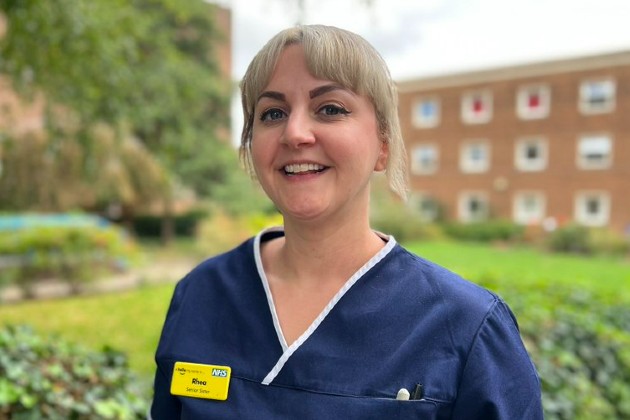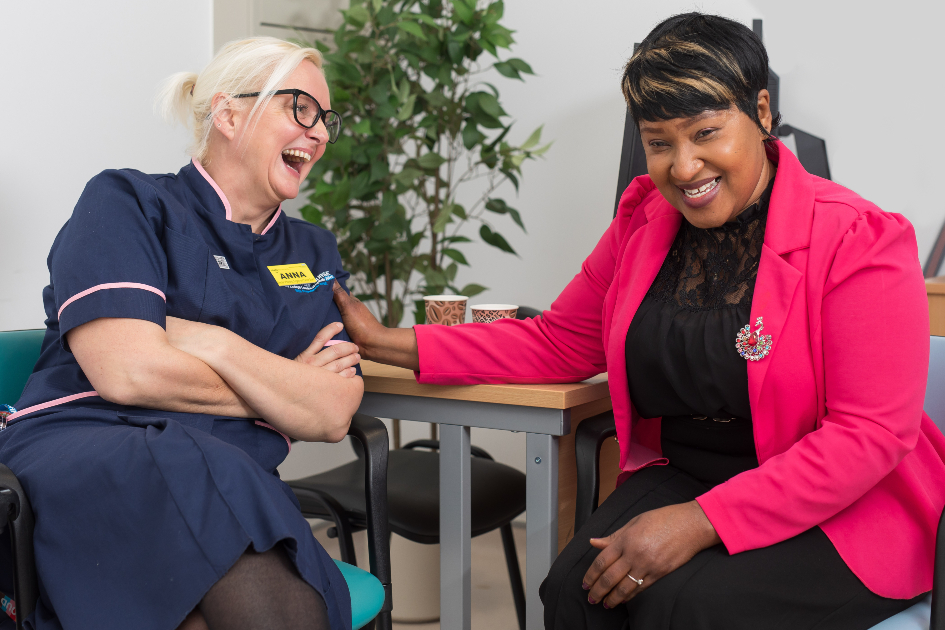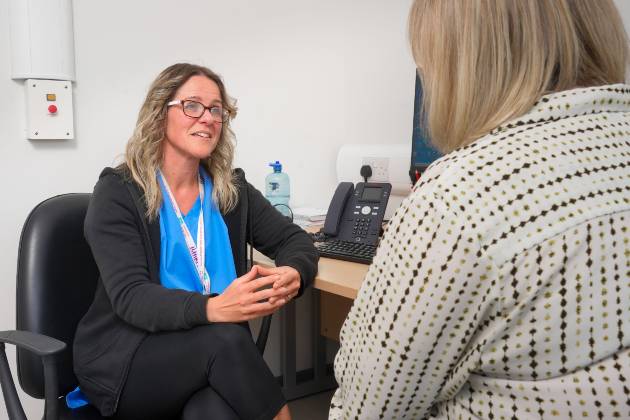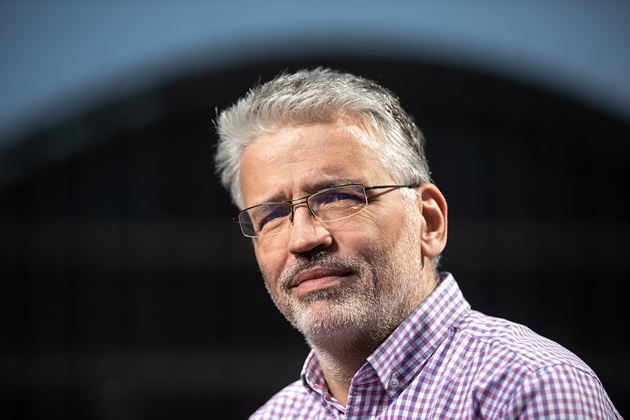Rhea Conn is a clinical sustainability lead and senior sister in ICU. She believes nursing staff have a crucial role in leading initiatives to reduce the environmental impact of health care.
Rhea recently took part in a new RCN education programme to learn how to lead arguments for patient care based on the science of climate change and make procurement more sustainable where she works. She took five minutes to tell us more.
Why did you take part in the programme?
The programme recognises that climate change – as well as the collapse of biodiversity – are the biggest global health threats today, and nursing staff play a key role in reducing greenhouse gas emissions. I currently work in a hybrid nursing role with support from NHS England on a pilot scheme where I get seven and a half hours a week to dedicate to sustainability projects. I was keen to increase my knowledge in this area, not only so I can do my job better, but so I can make a tangible difference to patients, staff and the environment.
What did it involve?
It included six half days of virtual learning, with two written assessments and various exercises in between, including live lectures, seminars, workshops and one-to-one coaching. There was lots of interaction and participation with speakers from different specialties and good opportunities for questions and answers.
One box of gloves can equate to up to a 15km drive
What did you benefit most from?
We were given advice on how to get people on board with your sustainability projects – essentially, how to create a business case to put to your employer. We received formal coaching, which is a great opportunity for personal development.
We also undertook a carbon literacy course, which gives you the tools to talk about climate change and carbon emissions more confidently. That in turn gives you added legitimacy when discussing potential projects with colleagues and managers.
What got you interested in sustainability?
I’ve always been interested in it, and because of the Greener NHS programme and its net zero target, sustainability has rocketed in popularity. It’s not just a hobby for people anymore.
In my role people come to me with their ideas, and even though I support them, they’re the ones setting up the projects. We’re currently doing an audit on overuse of PPE and we’ve started project trials as well, like bulk buying shower gel rather than using individual sachets. They’re small things, but they still make an impact and have the potential for a wider rollout.
The things I learned on the RCN course are widely applicable – knowing the facts and knowing how to talk about them. It can feel daunting to show up in different clinical areas and figure out what staff can do to be more sustainable so instead I help them figure out what works in their area.
What are some of the wider benefits of sustainable health care?
Whenever I do sustainable projects, I ask myself: what are its environmental, economic and social impacts?
For example, reducing PPE will save a lot of waste, which is good for the environment, it’s more cost effective, and patients still get that human touch. Gloves often present a barrier – they can make patients feel disconnected or even like they’re dirty. Reduction of glove use also improves infection prevention and control practice because people wash their hands more.
Manufacturing one glove produces approximately 25 grams of CO2 emissions, and it’s sixty-five grams per apron. If you do some simple calculations, the production of one box of gloves can equate to up to a 15km drive. That’s the kind of thing I like to do, and the RCN course gave me skills to adapt statistics from abstract figures into something tangible people can imagine.
What else can staff do to mitigate their environmental impact at work?
Recycling is a real issue in the NHS, because the infrastructure isn’t always there and it differs from trust to trust. However, trying to change waste management in a whole trust is quite a big undertaking. Instead, we should focus on what we can do.
Glove use and PPE are talked about a lot, but the biggest source of emissions in health care is medical products, and staff can push for sustainable alternatives. Promoting reusable cups in cafeterias is also a simple and achievable action.
If we fix these issues and improve our sustainability as a population, then workload will decrease
Why should nursing staff get more involved?
I completely understand that many nursing staff don’t have the time to take this on. Health care services are overwhelmed, but if we fix these issues and improve our sustainability as a population, then workload will decrease.
Things like air pollution have adverse health effects, putting additional strain on services. Financial savings made by the trust as a result could be put back into staffing, training, and patient care.
Sustainability projects interest people: they can give them autonomy and when they’re successful, positive outcomes for the wider workforce. Taking part in making improvements can also boost morale and allow people to gain leadership skills – there are a lot of career opportunities here.
More information
- Get involved with our leading sustainability programme.
- Read our library subject guide on sustainable nursing practice.
- Learn more about why sustainability matters in health and social care.








